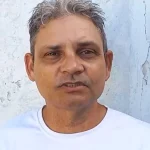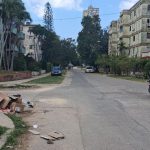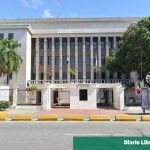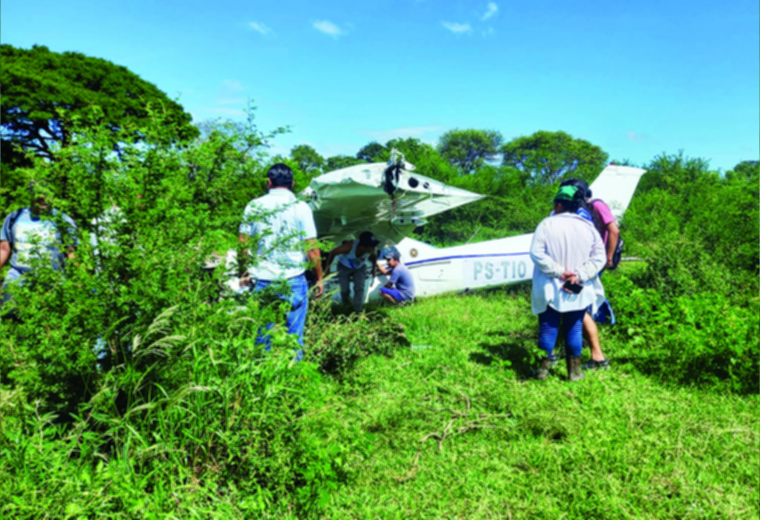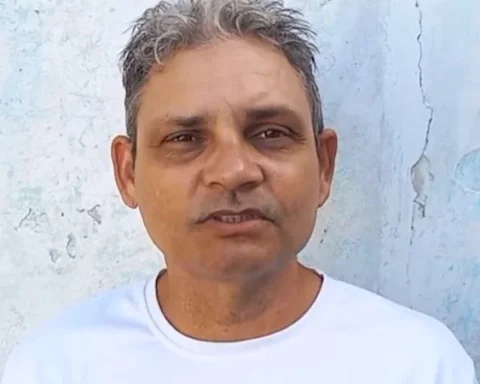The new constituent process continues its itinerary and this Monday, March 6, key milestones will be achieved.
At noon in the Conference Room of the Congress in Santiago, the Expert Commission will be constituted in charge of proposing a draft that will serve as the basis for discussion and drafting of the new Constitutional proposal, while at 4:00 p.m. the Technical Admissibility Committee will be constituted .
The senator and president of the Democratic Revolution (RD), Juan Ignacio Latorre, addressed these milestones, along with stressing that they have been in talks with different political forces, including the right. In this sense, he took the opportunity to highlight the presence of the expert Domingo Lovera in the Commission and the arbitrator Viviana Ponce de León in the Committee, but raising the existence of a certain aversion of the people regarding the constitutional draft.
“We are very aware that this process begins with a certain disaffection of the citizenry. This is inevitable and we would be blind if we do not see that reality,” Senator Latorre told the press, leaving a party meeting.
The RD helmsman maintained that the challenge, then, is to “install the discussion of the experts who are going to prepare the draft and who can connect, build trust, with the citizenry, and who can gradually understand the debates that are going to take place go giving”. For example, he mentioned substantive debates, such as the difference between a Social and Democratic State of Law versus a Subsidiary State, “that must be lowered to the level of concrete content that makes sense to the citizenry.”
The first stage of the constitutional process “cannot remain in a theoretical or academic debate,” according to the legislator.
“Our expectation is that this process starts from less to more, in terms of building trust, so that by the end of 2023 we have a new Constitution,” he added.
change of cabinet
Juan Ignacio Latorre, as a member of Apruebo Dignidad, also addressed the possible ministerial adjustment that could take place during March in La Moneda. He said that his party fully trusts the criteria finally decided by President Gabriel Boric, who has the last word as President of the Republic and head of the coalition, and who has the power to permanently evaluate his teams.
“The communication channel with La Moneda is open, our party makes proposals, but the President has the last word,” Senator Latorre stated.
In his opinion, beyond the balances and quotas of power, “what has to keep us firm is a conviction of having a better government, a better government management, for the vast majority of our country.”
DR’s plans for the future
Addressing the pro-government alliances, the party’s general secretary, Araceli Farías, stated, after the closure of the so-called DR Strategic Congress, that for three months the party’s militancy has been discussing its priorities, its role in the Executive, and how promote the relevance of local governments, while building “a new policy” in the face of new challenges.
“We have reached conclusions such as the need to promote a broad alliance policy that prioritizes the protection of democracy, in the face of the challenge of the advance of the extreme right, of right-wing populism, and therefore as the DR we are available to build a alliance with transforming forces that are willing to face this threat,” said Farías.
Along the same lines, in the DR they believe it is important to “promote a historical leadership bloc of the left, with the Broad Front, the Communist Party and the Socialist Party —today grouped in the United for Chile pact for the election of the Constitutional Council— , to give greater support, substrate, to the government project of President Gabriel Boric”.
On the other hand, added the general secretariat, they consider that their main space for growth is the municipalities. Therefore, its actions over the next few years will have a strong focus on them. “We hope that our reflections, which will be shared in the ruling party, will be a relevant input that will allow all of us to continue pushing this new political cycle,” added the RD board of directors.
For his part, also slipping the emergence of “different pacts”, Latorre said that a very challenging cycle is coming for them as an official party, with the elections of the constituent process this year and the municipal ones next.
“Our party has defined, within the framework of the official dialogue, flexible and pragmatic policies, to be able not only to re-elect our authorities and local governments but also to grow. And that can lead to different agreements, pacts, throughout the country, in the framework of conversations and national agreements that register the parties that are part of the government alliance,” he said.
“We are going to prepare, from now on, to face the next municipal year, which is the prelude to the presidential and parliamentary elections of 2025,” added the pro-government senator.
And he concluded: “We are convinced that this government of President Boric, which is a transition government in a new political cycle for Chile, must be the beginning of a cycle of transformative changes. It cannot be a government of debut and farewell. And in That is why our adversary to defeat politically and democratically is the radicalized right, in all spaces, territorial, cultural, media and ideas”.
“We need a stronger party, pro-government, that takes root in the people and that is in formation, in democratic discussion, and in alliance with others, because transformations are not done alone,” he closed.
In the closing of the Strategic Congress of the Democratic Revolution 2023, the ministers Giorgio Jackson and Marco Antonio Ávila, deputies Catalina Pérez, Jaime Sáez, participate. Consuelo Veloso, Ericka Ñanco and Jorge Brito; the mayors Emilia Ríos, Tomás Vodanovic, Carla Amtmann, Francisco Riquelme and Luis Valenzuela; and the Undersecretaries Tatiana Rojas, Carolina Pérez, Paula Poblete, Claudia Sanhueza, Cristóbal Cuadrado and Cristóbal Pineda. In addition to the National Directive RD.








